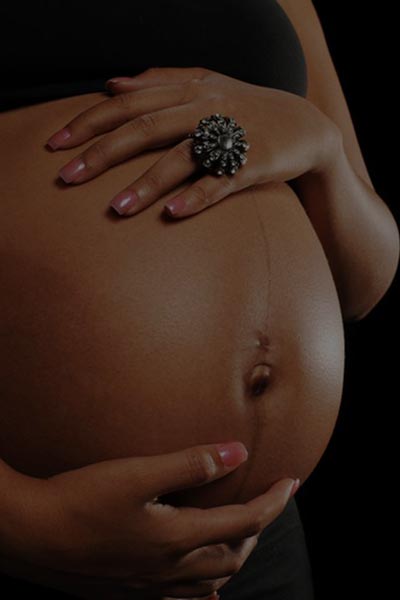Our Services
How we bring hope to the African child

Prenatal diagnosis for Sickle Cell Disorder
This is a test that can be done on the baby before it is born to see whether it is affected by sickle cell disorder or not. Nowadays, the best way to examine the material from the baby is by analysing the haemoglobin genes. This is called “DNA analysis”. Using this method, it is possible to detect the genes for haemoglobin A and haemoglobin S in the material from the baby’s developing placenta. This procedure is called Chorionic Villus Sampling (CVS).
Remember that, for most couples at risk for sickle cell anaemia (e.g. AS x AS) there is a 3 out of 4 chance of a healthy child in each pregnancy.
Chorionic Villus Sampling (CVS)
CVS can be done early in pregnancy between 11 and 13 weeks. If you are interested in the procedure, you will have to get in touch with us when your pregnancy is around 7 – 8 weeks (confirmed by ultrasound scan) to make a booking. CVS is performed by a trained Obstetrician using the trans-abdominal route under ultrasound guidance. Local anaesthesia is applied before sampling to reduce pain during the procedure. Clients can get up and leave a few minutes after the sample is obtained. However, they should avoid strenuous activities and sexual intercourse for a few days afterwards to minimize risk of miscarriage.
How the CVS is tested
DNA from the chorionic villi is studied to see if the baby’s genes for haemoglobin are normal, or if an alteration has been passed on from the parents. It takes about 3 days to get the result of prenatal diagnosis.
Is The DNA Test Accurate?
DNA analysis is the best method for diagnosing inherited disorders. However, in every medical test, there is a small possibility of an error in diagnosis. The chance of a mistake is less than 1 in 200 (0.5%).
Is CVS Safe?
There is practically no risk to the mother. The main risk is that the test could cause a miscarriage. We do the test as gently and expertly as possible, but anything that interferes with a pregnancy can cause a miscarriage. At the moment, the risk of miscarriage after CVS during the first 12 weeks seems to be around 1 in 50 (2%). However, it is difficult to give an exact figure because other factors may influence the risk of miscarriage after the procedure. When a miscarriage does occur, it can be difficult to tell whether it was due to the test or not, because many miscarriages happen naturally at around 12 weeks of pregnancy without any interference.
When Was Prenatal Diagnosis Introduced To Nigeria?
Prenatal diagnosis was introduced to Nigeria in November 1993 through an initiative of the Sickle Cell Club of Lagos Nigeria and the collaboration of the British Council, the department of Obstetrics and Gynaecology of Lagos University Teaching Hospital, Idi-Araba and the Nigerian Institute of Medical Research, Yaba.
Reception and Counselling
Our receptionist at the National Sickle Cell Centre will make an appointment for the couple to meet our trained Sickle Cell Counsellor who will note the date of the last menstrual period, the obstetric and medical history and ensure that they understand all the relevant information.
The blood of the prospective parents – both the man and woman – will be drawn in the laboratory for some preliminary tests and the woman will be given a date for meeting the Obstetrician who will perform an ultrasound scan and perform the CVS sampling.
For further information, please contact:
Sickle Cell Foundation Nigeria
National Sickle Cell Centre,
Opp Lagos University Teaching Hospital(LUTH),
Ishaga Road, Idi-Araba, Surulere,
Lagos. Nigeria.
P.O Box 3463, Surulere, Lagos
Telephone
+234-803 584 6666 – Programme Cordinator
+234-810 000 2001 – Enquiries
+234-810 000 2002 – Genetic Counseling
+234-810 000 2003 – National Director
Email
info@sicklecellfoundation.com
scf-ng@hotmail.com
